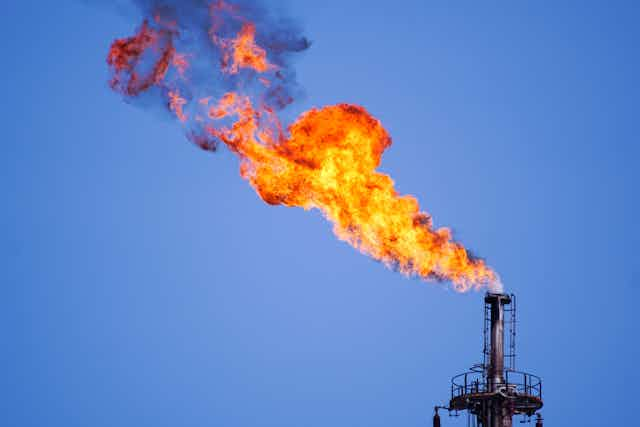As if there was any doubt, the UN’s latest report on climate change makes clear this is one of the most pressing issues of our times. And as we witness Extinction Rebellion stirring the pot of protest in the UK, that movement is connected to the geopolitical experience of other countries in important ways.
This is certainly the case where Mexico is concerned, a country that has been rightly held up as a major leader on climate change in the developing world, while putting the US government to shame over its own inaction. The Paris Agreement is a crucial UN-led international arrangement that intensifies global climate decarbonisation and adaptation measures, yet the Trump administration has indicated its intention to pull out.
Mexico has taken direct inspiration from the UK’s Climate Change Act, which requires a 34% reduction in national greenhouse gas emissions by 2020 (measured at 1990 emissions levels). In early June the UK government pledged a new commitment of “net zero” by 2050.
Seeking to follow the UK, Mexico put its own equivalent General Law on Climate Change in place in 2012 with advice and support from British experts. The UK is now recognised as the pioneer of this type of framework approach to climate change in the developed world, with Mexico as the equivalent torchbearer in the developing world.
Mexican politics
But things are running far from smoothly in Mexico at present. The country’s recent election of “strongman” president Andrés Manuel López Obrador has significantly hampered the General Law’s implementation. Since taking office in December 2018, the leftist populist has swung his attention and sympathies towards Mexico’s powerful fossil fuel lobby, supported in turn by other powerful lobbies including cement and steel.
Planning to restore the national oil company Pemex to its glory days after the previous administration opened it up to the private sector, Obrador said recently: “We are going to rescue this industry that is so important for the country’s development.” As one of the country’s biggest employers, this has gone down well with many Mexicans. But this also means the future stability of Mexico’s celebrated low-carbon transition has been cast into serious doubt.
Admittedly, the General Law was rocked and buffeted by heavy political winds since its first inception under the presidency of Felipe Calderón. Calderón’s six-year term, which ended in November 2012, was far from smooth, given the damaging impact of economic recession and disquiet around his alleged suppression of the press. But the Calderón administration did succeed in elevating climate change to a position of serious importance on the Mexican policy agenda, bolstered by substantial support from the UK.
Just as the General Law was bedding in, Calderón was replaced by President Enrique Peña Nieto. Beset by accusations of corruption, Nieto’s administration displayed scant regard for climate concerns, and was able to leverage one of the General Law’s great deficiencies to create a culture of climate inertia – a gaping chasm between the law itself and its implementation. In other words, the law was prescribed but the specific policies needed to achieve lower carbon emissions were not.

Enter the recently elected President Obrador, who is presently extending this troubling gap between law and action. The Mexican government has long had an I-say-you-do tendency that emanates from the presidential office downward – a tradition strengthened by this recent election. Mexican presidential administrations run for six-year terms (they are non-renewable), and the current president is only getting warmed up.
Of course, in terms of broader UK/Mexico dynamics, things are far from perfect on the UK side. For starters, the UK government has now agreed to up its 2050 reduction target for emissions to net zero, but this could prove difficult to achieve in practice, and some pressure groups including Extinction Rebellion are pushing for a net zero economy by 2025.
Positive example
Admittedly, Mexico’s General Law lacks stringent UK-style reduction targets altogether, instead rolling some soft aspirational targets into an annex to the legal text. But Mexico is a poorer developing country that is not historically responsible for emissions release to the same extent that the highly industrialised developed world is.

And so, in spite of some flaws, the Mexican scheme does set a positive example to the wider world. A growing number of countries are taking inspiration from the serious commitment Mexico and the UK have made to climate issues by scrambling to put their own version of these climate change acts in place.
Added to this, a few months before Obrador took office, in July 2018, an amendment beefed up the Mexican framework slightly to bring it into line with requirements under the international Paris Agreement. So there is still much to feel optimistic about.
It is to be hoped that the Obrador administration recognises that valuing and acting on Mexico’s important, pioneering framework begins at home. This will allow the flow of international green finance to Mexico from the UK and other major state funders to continue. If not, the UK will be looking elsewhere for a developing nation to support it in its commitment to fighting climate change.

